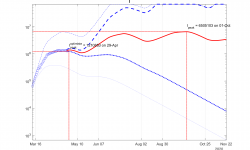Adaptive Stabilization by Delay with Biased Measurements
21st IFAC World Congress will take place in Berlin on July 11-17, 2020. It is the principal scientific event in the domain of automatic control, which is organized once in three years. Valse team has more than 20 accepted papers at this major event! One of them deals with adaptive stabilization…


